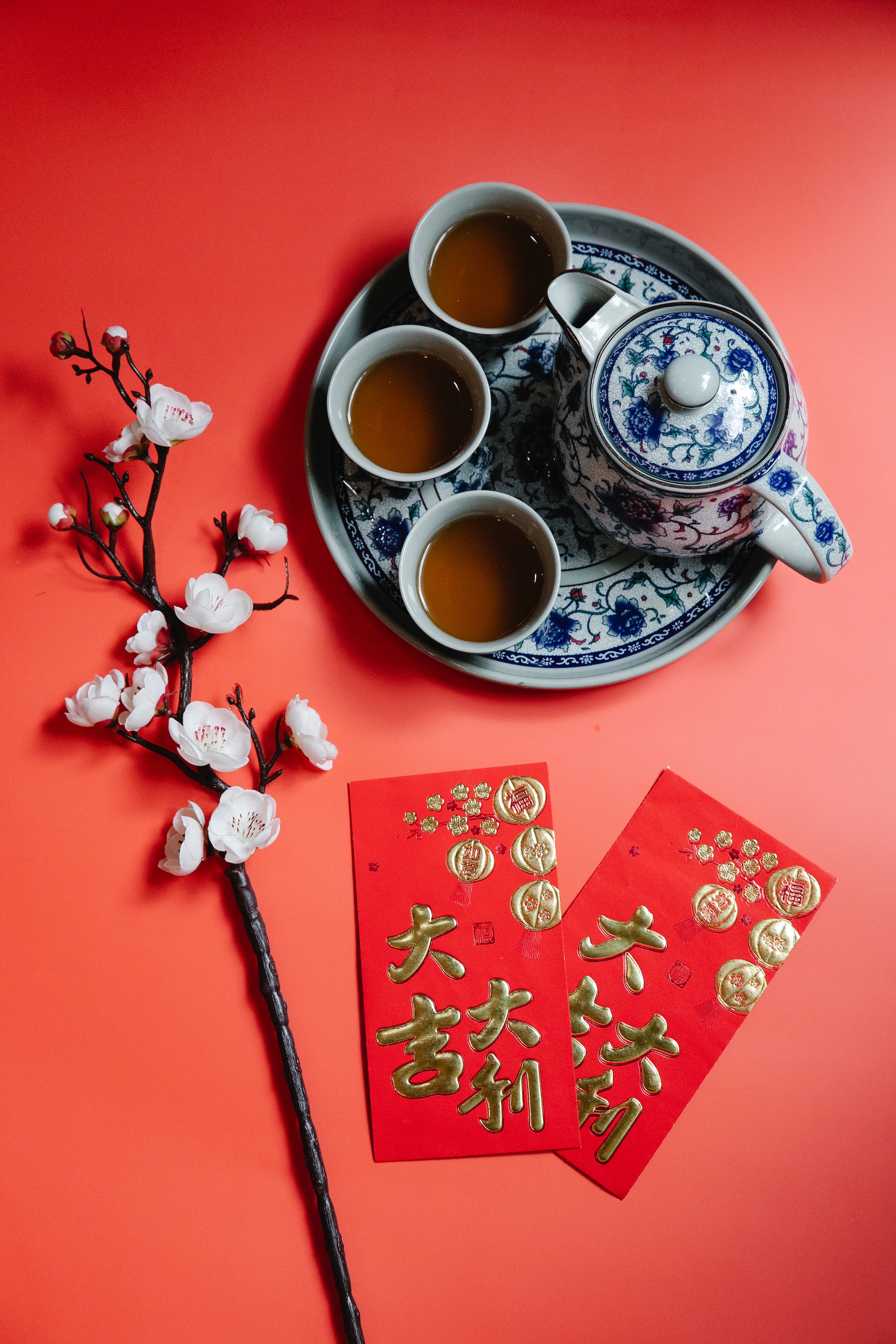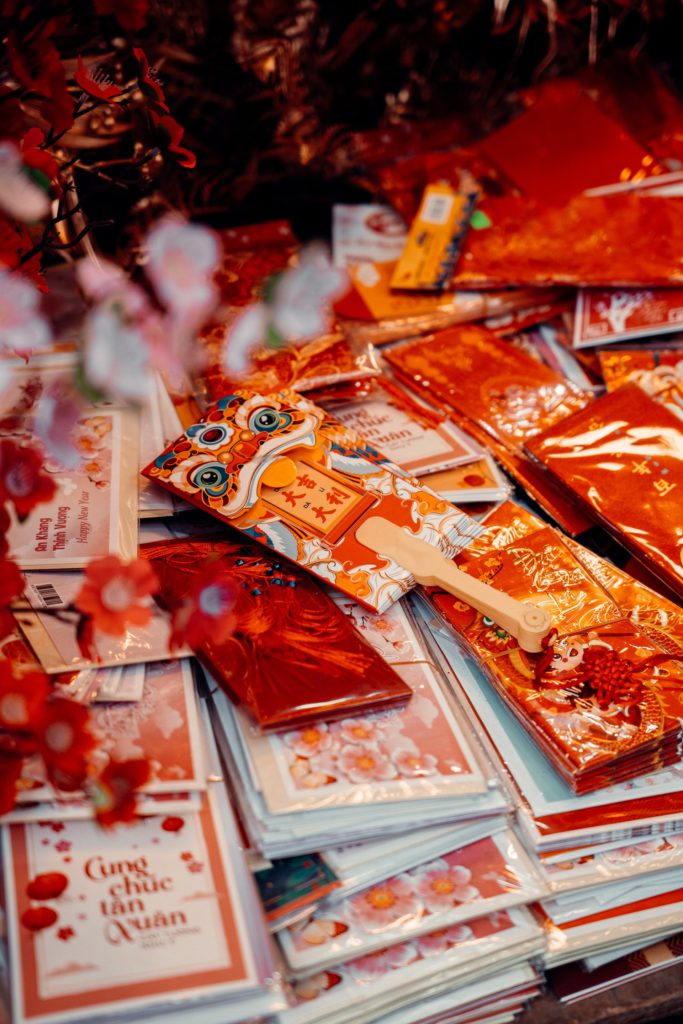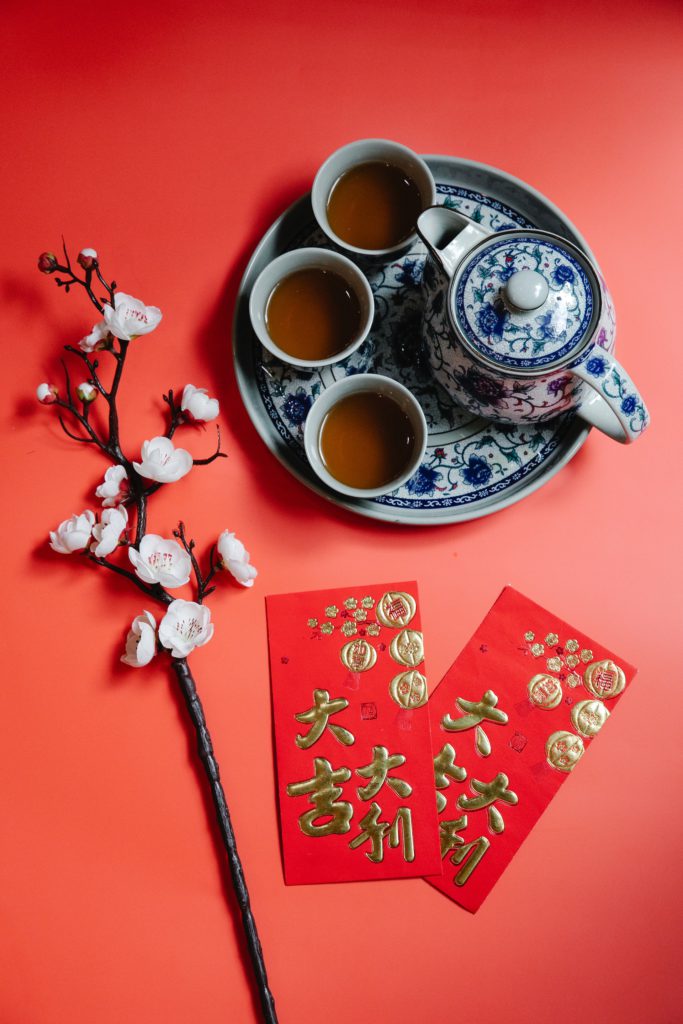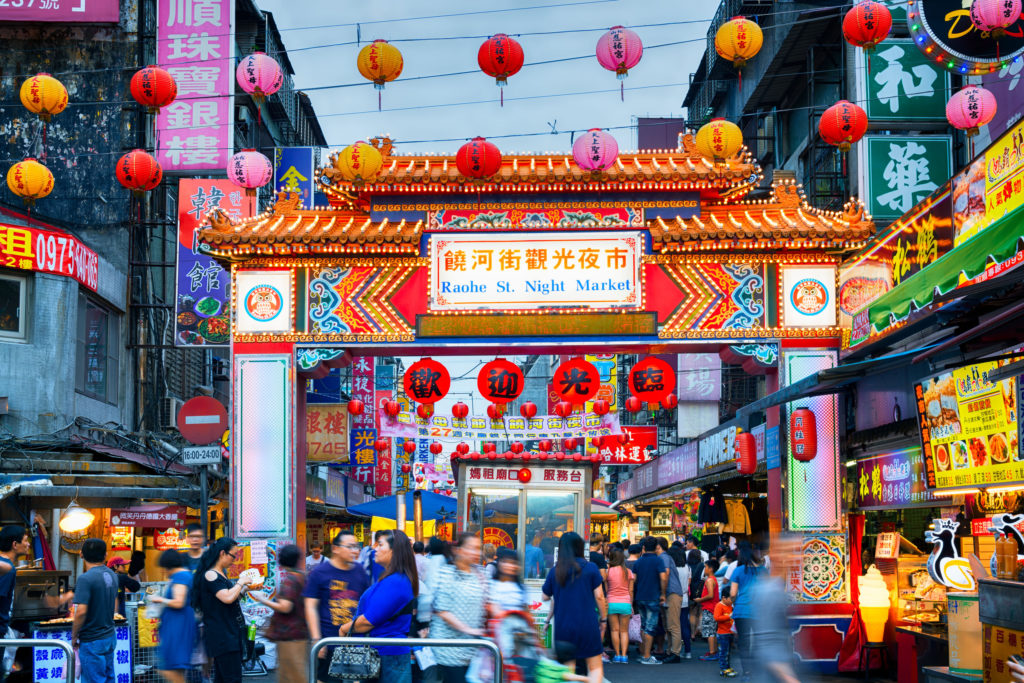
Chinese New Year, also known as the Spring Festival or Lunar New Year, is the most important traditional holiday in Chinese culture.
It marks the beginning of the Chinese lunar calendar and usually falls between January 21 and February 20, depending on the lunar cycle. It’s a time when we go home visiting family, and people even travel from abroad to reunite with loved ones. This tradition is rooted in the importance of family unity and respect for one’s elders.

In addition, we do a spring cleaning before the New Year, homes are thoroughly cleaned to sweep away bad luck and make way for good fortune in the coming year! Red is the dominant color during Lunar New Year as it symbolizes luck and prosperity. We decorate our homes and public spaces with lanterns, banners, and other red-themed decorations. (Read also: 【Taipei Day Tour】Monga, Where the Story of Taipei Begins)
Many people visit temples to pray for good luck and prosperity in the coming year. Temples are often crowded with people seeking blessings and guidance. You might like our Taiwanese temples tour. There are also traditional performances involve dancers dressed as lions and dragons, respectively, moving in intricate choreography to music. These dances are believed to bring good luck and ward off evil spirits. Of course my favorite part is the red envelopes (紅包 hongbao) filled with money, given by elders to younger family members and friends as a gesture of good luck and blessings for the new year.

Before New Year’s Eve, we usually go shopping for nianhuo (年貨), which means “New Year goods.” Nianhuo are an essential part of preparing for the festivities and are also exchanged as gifts among family, friends, and business associates. Common types of nianhuo include, traditional foods, rice cakes (年糕), fresh fruits, decorations, pre-packaged gift sets, tea and alcohol, incense and offerings, ceremonial items, etc. Overall, nianhuo shopping is a cherished tradition that helps set the festive mood and fosters a sense of unity.
Where can you go shopping for Lunar New Year? We got the answer for you here! There are several popular markets, shopping districts, and stores where you can find a wide variety of festive items. Here are some places you can visit for your nianhuo shopping:
Dihua Street Market (迪化街市場):
This is one of the most famous and traditional markets. During the Lunar New Year season, Dihua Street comes alive with an array of traditional goods, decorations, and festive items. Located in the Dadaocheng area, Dihua Street is lined with shops selling traditional foods, snacks, candies, dried goods, decorations, and more. It’s a hub of activity leading up to the holiday.
Dihua Street is renowned for its extensive selection of traditional foods and snacks. You’ll find a wide range of dried fruits, nuts, seeds, preserved meats, and candies that are popular choices for Lunar New Year feasting and gifting. Also, many people visit Dihua Street to buy herbs, which are ingredients used in Chinese herbal medicine and cooking. (Read more: 【Taipei Day Tour】 Cultural Heritage of Dihua Street and Wanhua)
Dadaocheng (大稻埕):
Beyond Dihua Street, the Dadaocheng area offers various shops and boutiques that sell unique and high-quality nianhuo items, including traditional textiles, ceramics, and more. You can also buy custom-make qipao (旗袍), is a traditional Chinese dress that originated in the 1920s Shanghai and has become an iconic symbol. Additionally, the qipao is characterized by its form-fitting silhouette, high collar, and elegant design. It has a long history and has evolved over time to incorporate various styles and fabrics. (Read also: 【Taipei Day Tour】Let’s Stroll at Dadaocheng | Old Fashion is the New Trending)
Ximending (西門町):
Known as Taipei’s trendy shopping district, Ximending is also a great place to find Lunar New Year goods. You can find a mix of traditional and contemporary items, including clothes, accessories, decorations, and more. Many shops and boutiques in Ximending offer Lunar New Year promotions and discounts to attract shoppers. This makes it a great time to find deals on clothing, accessories, and other items.
Furthermore, Ximending is known for its entertainment options, including movie theaters, karaoke, and performance stages. During Lunar New Year, there may be special events and performances to celebrate the holiday.
Raohe Night Market (饒河夜市):
This bustling night market offers a variety of goods, including festive items like decorations, traditional foods, and snacks. It’s a great place to shop for nianhuo while enjoying the vibrant atmosphere.
The entire night market area is often adorned with red lanterns, banners, and other decorations to celebrate the Lunar New Year. While the market itself may not primarily focus on selling traditional New Year goods, the festive atmosphere is still very much present. You can find seasonal fruits and treats, like traditional snacks and candies that are associated with the Lunar New Year.

Linjiang Street Market (臨江街市場):
This market, also known as Tonghua Night Market (通化夜市), is located in the Da’an District. It’s a great place to find Lunar New Year decorations, traditional foods, and various gifts. Like many other markets and shopping districts in Taipei, Linjiang Street Market gets dressed up for the Lunar New Year celebrations. You can find a wide array of traditional nianhuo, such as dried fruits, nuts, rice cakes (nian gao), and more.
Flower Markets:
Leading up to Lunar New Year, you can find various flower markets in Taipei. These markets offer a variety of blooming flowers, plants, and bonsai trees, which are often used for decorating homes and businesses. After spring cleaning, we decorate homes with fresh flowers and plants as it symbolizes luck and prosperity in the coming year.
If you’re interested in Lunar New Year shopping, make sure you plan your trip early. It’s never too early to start planning your Taiwan family trip!
Justaiwantour can do a customized tour for you. Follow our instagram for more amazing Taiwan!!!
You might also be interested in:
留言